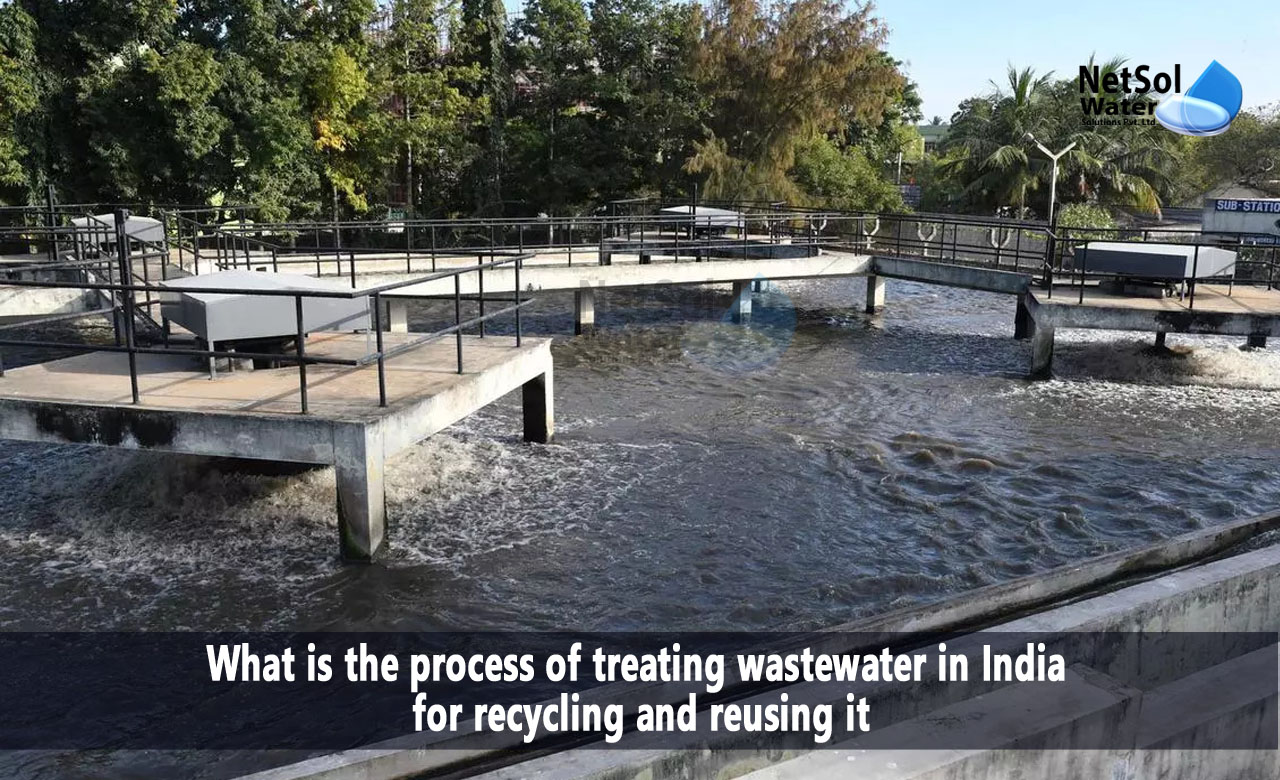Process of treating wastewater in India for recycling and reusing it
Wastewater treatment plants are a lifesaver in a country like India where many regions experience draughts, and severe water shortages.
Netsol Water, leading manufacturer of wastewater treatment plants in India, aids in the treatment of wastewater and the creation of reusable water, both of which aid in the use of wastewater in various ways, and the production of fertilizer that may be utilized as plant nutrients.
Water can be treated in a number of ways; in India, the municipal corporation handles wastewater treatment with the assistance of several wastewater treatment firms in India.
Let’s understand the process of treating wastewater in India for recycling and reusing it!
· Collection of waste water
The wastewater treatment process begins with this phase. The wastewater is first and foremost collected in a large tank via a network of pipes, and then delivered to the wastewater treatment plant.
When managing a smaller amount of water, wastewater treatment facilities can be installed on the premises; however, in the case of major businesses and factories, when this is not practical, the water is collected and treated offsite. It is kept up to a specified standard to prevent corrosion, while it is being carried and stored.
· Treatment of wastewater
Treatment of the contaminated water is the next step in Indian wastewater treatment. It is obvious that the process depends on the level of pollution.
As compared to water that is not as polluted, water that is seriously polluted requires a more intensive procedure of treatment. Many times, it also depends on government regulations, because the levels of clarity vary across the nation and the treatment must meet quality standards.
· Discharging the treated wastewater
The final step in the wastewater treatment process in India is to release the cleaned, safe water back into the environment. This water slowly seeps into the ground and mixes with the water table.
Typically, it is either recycled by businesses for manufacturing purposes, or utilized for gardening and plant watering.
How can we reuse the treated wastewater?
There are many techniques to recycle wastewater. The methods that are most frequently employed are listed here.
1: As previously mentioned, the water generated after treatment is used for agriculture. In this way, the water is used by plants and any excess water fills the water table.
2: Additionally, any leftover sludge is used as manure, which is very beneficial to plants, as it supplies them with nutrients.
3: There are a number of regions in India with natural gas deposits; as a result, adding sludge to landfills aids in the generation of gas.
4: Sludge has a variety of functions, but it is frequently employed in public projects like building roads, and as concrete in construction.
Just 2% of the 165 billion m3 of wastewater that is collected and processed each year, worldwide is currently reused. The procedures we suggest allow wastewater to be recycled, for a number of non-domestic uses.
Get high-quality wastewater treatment plants from Netsol
Netsol Water provides a wide range of technical options for recycling wastewater, to help local authorities with their sustainable water management strategies.
One of the main benefits of wastewater reuse, particularly in areas impacted by water shortages and drought, is the avoidance of discharges while increasing available water at a cheaper cost.
While, avoiding the release of harmful substances, we recycle wastewater using tried-and-true methods. Water that has been treated using innovative methods is high-quality to allow for reuse. Contact us at +91 9650608473 or enquiry@netsolwater.com for expert advice.



